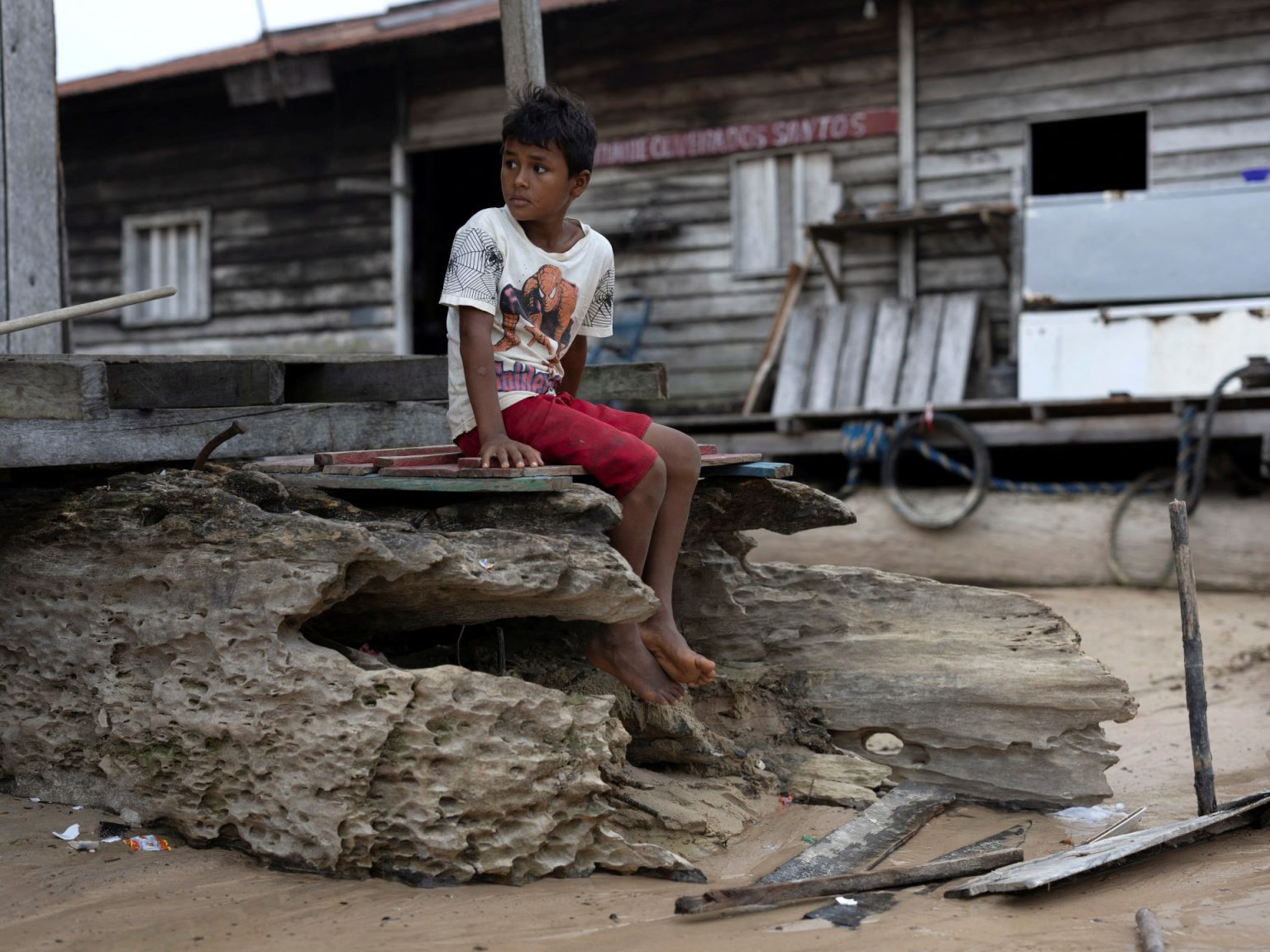At the upcoming COP29 summit in Azerbaijan, UNICEF is urging leaders to increase climate financing for children as more than 420,000 children in the Amazon basin are facing water scarcity and drought in Brazil, Colombia, and Peru. The ongoing record-breaking drought has significantly impacted Indigenous and other communities in these countries, leading to a lack of access to essential resources such as food, water, healthcare, and education. UNICEF Executive Director Catherine Russell emphasized the urgent need to address the devastating effects of extreme climate crises to protect children and future generations. The organization is calling on leaders to deliver critical actions, including a dramatic increase in climate financing for children to mitigate the impacts of the crisis.
The resulting food insecurity in the Amazon has increased the risk of child malnutrition, while limited access to drinking water is likely to lead to a rise in infectious diseases among children. The impact of the drought is evident in various sectors, with over 1,700 schools and 760 medical clinics in Brazil’s Amazon region having to close or becoming inaccessible due to low river levels. In Colombia’s Amazon, 130 schools were forced to suspend classes due to lack of drinking water and food, and more than 50 clinics in Peru became inaccessible. UNICEF estimates that $10 million is needed in the coming months to assist the affected communities by providing water and sending out health brigades to address urgent needs.
Weather observation agencies such as NASA’s Earth Observatory and the European Union’s Copernicus Climate Change Service attribute the drought across the Amazon basin to the 2023-2024 El Nino climate phenomenon in the Pacific. The insufficient rain combined with the shrinking of the vital rainforest’s rivers has exacerbated forest fires, disrupted hydroelectric power generation, and dried out crops in parts of several South American countries. Despite these environmental setbacks, Brazil’s Environment Minister Marina Silva believes it is possible for governments to confront climate change. Silva noted a 30% decrease in deforestation in Brazil’s Amazon compared to the previous year, attributing the reduction to increased enforcement of environmental laws under President Luiz Inacio Lula da Silva.
President Luiz Inacio Lula da Silva, who promised to step up enforcement of environmental laws upon his return to office, has seen progress in curbing deforestation in Brazil’s Amazon. The government reported that deforestation decreased by about 30% in the 12 months through July, marking the smallest area destroyed in the world’s largest rainforest in nine years. This achievement is a result of intensified efforts to protect the rainforest and prevent further environmental degradation. Additionally, Brazil’s northwestern neighbor, Colombia, also reported a historic 36% decrease in deforestation in 2023, indicating progress in addressing environmental challenges in the region. As global leaders prepare to convene at COP29, the urgency of addressing climate change and its impacts on vulnerable communities, especially children, is a pressing issue that requires immediate action and increased financial support to safeguard their well-being and future.













